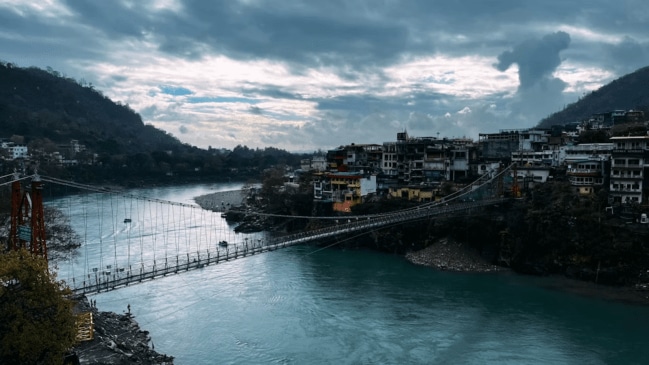Opinion What textbooks don’t tell our children about rivers
It is evident that the sometimes furious, sometimes silent rivers have been telling us something that we haven’t had the time to listen to. A hike through Uttarakhand becomes a revelation of environmental injustice
 Where are we going wrong as individuals and as a society in failing our rivers?
Where are we going wrong as individuals and as a society in failing our rivers? The year was 2022 and we were on one of our most adventurous holidays — a hiking trip across Uttarakhand. After scaling the hills and meadows from Auli to Chopta, soaking in the stunning views and marvelling at how skilled the nature gods are at creating the world (just as skilled as humans are at destroying it), we were standing at a height of 855 feet at the Tehri Dam, with the backdrop of the Himalayas and the spectacular Bhagirathi River flowing between the mountains.
“Thank you for bringing us here,” I told our driver. He forced a smile and stared at the river down below. “Can you see what’s under the river?” he asked me. And before I could answer, he said, “I can.”
He explained how his home in the town of Old Tehri in Garhwal was submerged under the Bhagirathi along with many villages after the construction of the dam — and just like that, all the people and places wiped off the map, off history.
I stood there trying to grasp the scale of his statement and the magnitude of the problem. Slowly, my eyes saw homes, schools, marketplaces. I saw children playing, people growing food, sharing meals, selling local wares, women dancing, singing by the riverbanks, celebrating festivals and centuries-old traditions. I saw an entire civilisation that once lived and laughed by the banks until the dam swallowed their past, present, and future.
A wave of questions swept over me like a tsunami. What happened to the people, their land, their livelihood, their education and healthcare? Were they compensated after being displaced? Even if they were, how does it even compare to being in your own home where you have fond memories — of a childhood, of raising a family, of neighbours and friends? What happened to the cattle, the fields and forests?
It was evident that the sometimes furious, sometimes silent rivers have been telling us something that we haven’t had the time to listen to. The word “submerged” never left me and soon I discovered so many other “submerged” stories along the way. Of rivers polluted due to untreated industrial waste and waste arising from religious practices, of river fronts that take us even further away from rivers, of floodplain encroachment and construction that has led to the catastrophic cloudbursts, landslides, flash floods, and unprecedented devastation that we are silently witnessing all around us today.
As much as I wish that these stories never existed, they do. I realised how our school textbooks never share the full story. I’m not a scientist or an expert on rivers — I’m just a children’s author passionate about bringing unexplored, unheard, unseen stories to children and I thought that these invisible stories that we cannot see, or those that we deliberately choose to ignore because we feel we cannot do anything about them, need to be told. I realised that narratives need to shift. It’s not the Yamuna that has flooded the homes and streets of Delhi. A river that has been pronounced as ecologically dead cannot flood anything — it has been made to flood through mindless pollution, ad hoc construction and sand-mining along riverbanks, dumping of debris in riverbeds, so much so that it ceases to flow under the weight of our sins.
I embarked on a journey to understand rivers closely, which led to the young-adult book Submerged Worlds and Other Amazing Stories of India’s Mighty Rivers (Penguin). While there are stories of neglect and apathy and death of rivers, there are stories of hope, perseverance and river revival, encouraging readers to think— where are we going wrong as individuals and as a society in failing our rivers?
The last Sunday of every September — September 28, this year — is celebrated as World Rivers Day to increase awareness about the significance of rivers and urge people to stand up for these bedrocks of civilisations that ask for just one thing: For their freedom and right to flow.
Shroff is an award-winning children’s author






